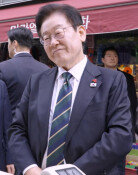Park: Advanced countries monetary policy poses burden on emerging economies
Park: Advanced countries monetary policy poses burden on emerging economies
Posted November. 17, 2014 22:45,
President Park Geun-hye directly expressed concern on Sunday over Korean exporters having difficulties due to a plunge in yens value caused by Japans quantitative easing. It is the first time that President Park officially raised issue with the "depreciation of the yen" in the international community. Japan reportedly has not shown any response to Parks comments.
At the G20 summit held at the Brisbane Convention and Exhibition Center in Australia on the day, Park said, As advanced countries implemented monetary policies in different directions lately, the international financial market is seeing increasing volatility, adding, It should be kept in mind that unbalanced valuation of the currencies of major advanced countries could pose burden on certain emerging economies. Japan has expanded its quantitative easing, which is causing damage to Koreas major exporters, while the U.S. has concluded its quantitative easing policy.
Park went on to say, In the interconnected world, advanced countries economic and monetary policies, which considers their own situations alone, have negative spillover effect on emerging economies. And this could bring about spillback effect, which negatively affects the economies of advanced countries. Due to Parks criticism, the communiqué of the G20 summit includes a provision reading "Countries cooperate with each other to manage spillover effect of different countries monetary policies."
President Park held a summit with New Zealand Prime Minister John Key on Sunday and declared the conclusion of free trade talks between Korea and New Zealand. The deal has been concluded five years and five months after the two countries opened talks. Along with the Korea-China free trade pact, this is the second free trade agreement during the Korean presidents latest overseas tours. As Korea signed free trade agreement with New Zealand, after concluding trade pacts with the U.S., Canada and Australia, the country has formed a free trade agreement network linking North America and Oceania. If the Korea-New Zealand trade agreement takes effect, the number of Koreans who are allowed to go to the Pacific island country on "working holiday" every year will increase from 1,800 to 3,000.







